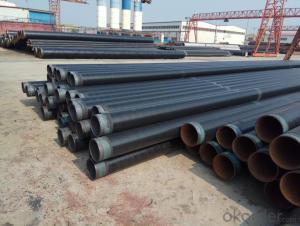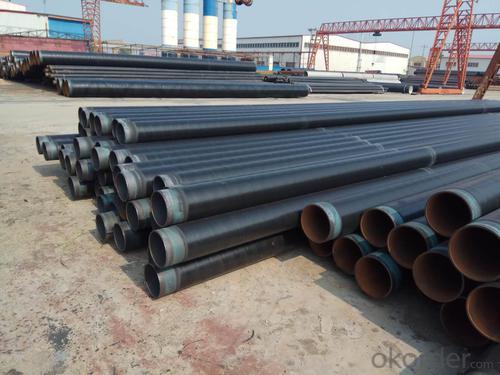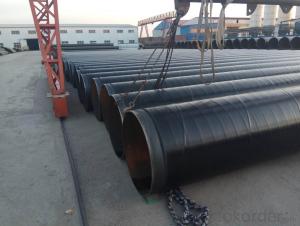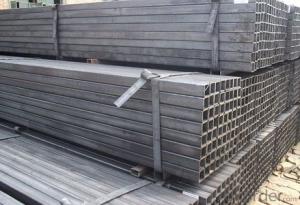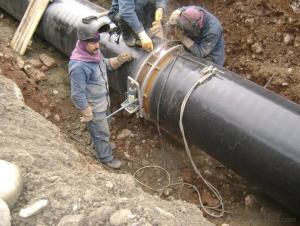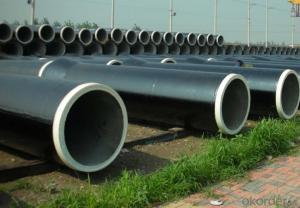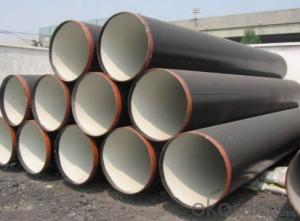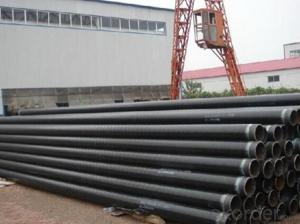Gas pipeline 3pe anti-corrosion steel pipe
- Loading Port:
- Tianjin
- Payment Terms:
- TT OR LC
- Min Order Qty:
- 33 m.t
- Supply Capability:
- 43544 m.t/month
OKorder Service Pledge
OKorder Financial Service
You Might Also Like
Specification
9711.2 gb 9711.1 spiral steel pipe, spiral steel pipe or spiral steel pipe, material classification: 16 mn material spiral steel pipe, Q345B spiral steel pipe, L245 spiral steel pipe, L360 spiral steel pipe, X40 - X80 spiral steel pipe, main USES, sewage treatment with spiral steel pipe, water purification with spiral steel pipe, water plant with spiral steel pipe, plant chemical enterprise with spiral steel tube pole, nuclear power with the spiral steel pipe, flammable liquid with spiral steel pipe, non combustible liquid with spiral steel pipe, gb spiral steel pipe, oil, or SY/T5037 spiral steel pipe. The product is made of hot rolled steel strip, often made by spiral forming and automatic submerged arc welding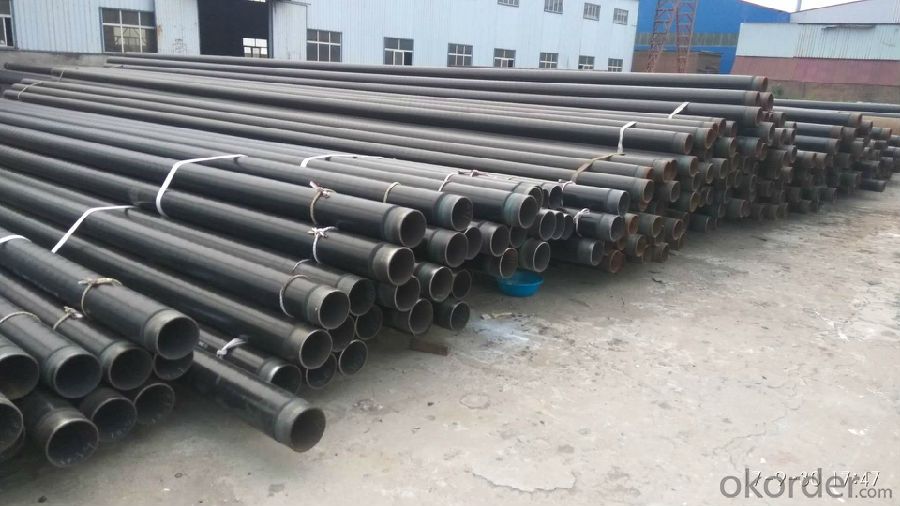
The trend of the spiral steel pipe market demand both rapid and random growth will not change fundamentally. Whether the spiral steel pipe market can maintain the rapid development of the hub depends on the change of demand. Macro economy is regulated by the policy level, which will slow down the market growth rate in the future
The main raw material is iron water plus scrap steel. The content of sulphur and phosphorus in steel is higher than that of high-quality carbon structural steel. Generally, sulphur is less than 0.050% and phosphorus is less than 0.045%. The content of other alloy elements brought into the steel by raw materials, such as chromium, nickel and copper is generally no more than 0.30%. According to the composition and performance requirements, the grades of such steel are indicated by the steel grades Q195, Q215A, B, Q235A, B, C, D, Q255A, B and Q275.
Note: "Q" is the upper capital character of the Chinese phonetic alphabet of the yield of "qu", and the subsequent number is the value of the minimum yield point (xun s) of the brand, and the subsequent symbol is divided into A, B, C and D according to the content of the steel impurity elements (sulphur and phosphorus) from high to low and accompanied by the changes of carbon and manganese elements.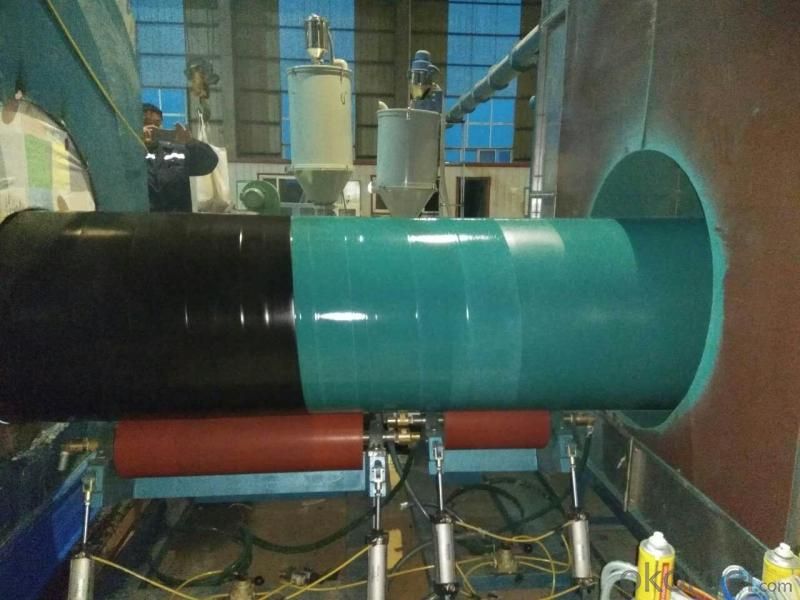
In gb700-88 standard, carbon structural steel Q235 is divided into four grades of A, B, C and D according to the metallurgical quality. Each grade of steel contains 0.3 percent of Si content. The difference lies in the difference of carbon content, sulfur content and phosphorus content. The carbon content of AB grade is 0.14%~0.22% and 0.12%~0.20%, the carbon content of CD grade is 0.18% and 0.17% at the same time, the Mn content of A grade is the smallest, and the content of d-grade SP is the smallest.
- Q: Does the seamless steel pipe need rust removal?
- Chemical and electrolytic methods are generally used for pickling treatment. The pipeline corrosion only uses chemical pickling, which can remove oxide, rust and old coating. Sometimes, it can be treated as sand blasting after rust removing. Two. Although chemical cleaning can make the surface reach a certain degree of cleanliness and roughness, but its anchor grain is shallow, and easy to pollute the environment.
- Q: How are steel pipes graded?
- Steel pipes are graded based on various factors such as the composition of steel, manufacturing process, and physical properties like strength, durability, and corrosion resistance. These grades are assigned based on internationally recognized standards such as ASTM, API, and ISO, which provide specific criteria for different applications and industries.
- Q: What are the different types of thread connections used in steel pipes?
- The different types of thread connections used in steel pipes include tapered threads such as NPT (National Pipe Thread), BSPT (British Standard Pipe Taper), and API (American Petroleum Institute) threads. There are also parallel threads like BSP (British Standard Pipe) and G (ISO 228-1). These thread connections are used to join and seal steel pipes in various industries and applications.
- Q: Can steel pipes be used for hydronic heating systems?
- Yes, steel pipes can be used for hydronic heating systems. Steel pipes are commonly used in hydronic heating systems due to their durability, high temperature resistance, and ability to handle high pressure. They are suitable for both residential and commercial applications and can efficiently transport hot water or steam throughout the system.
- Q: Difference between seamless steel pipe and welded pipe
- Welding pipes can be used in water pipelines, gas pipelines, heating pipes, electrical appliances, pipelines and so on.
- Q: Can steel pipes be used for transporting liquids and gases?
- Yes, steel pipes can be used for transporting liquids and gases. Steel pipes are commonly used in various industries, such as oil and gas, water supply, and chemical processing, due to their durability, strength, and resistance to corrosion. They are capable of safely and efficiently transporting a wide range of liquids and gases over long distances.
- Q: Are steel pipes resistant to earthquakes?
- Steel pipes are generally more resistant to earthquakes compared to other materials due to their strength and flexibility. However, their ability to withstand seismic events depends on various factors such as the design, installation, and support systems in place. Overall, steel pipes can provide a higher level of earthquake resistance, but proper engineering and construction practices are crucial to ensure their effectiveness.
- Q: What are the different pressure ratings for steel pipes?
- Steel pipes have varying pressure ratings to indicate their maximum safe handling pressure. The pressure ratings of steel pipes can differ based on factors like pipe diameter, wall thickness, and material grade. Common pressure ratings for steel pipes are as follows: 1. Schedule 40: This is the standard pressure rating for general applications. It is suitable for low to medium pressure systems, with a maximum working pressure of 150 psi. 2. Schedule 80: Used for higher pressure requirements, it has a thicker wall thickness compared to Schedule 40, enabling it to handle working pressures of up to 300 psi. 3. Schedule 160: This heavy-duty pressure rating is for high-pressure applications. It has an even thicker wall thickness than Schedule 80 and can handle working pressures of up to 500 psi. In addition to these standard pressure ratings, there are specialized steel pipes available with higher pressure ratings, such as Extra Strong (XS) and Double Extra Strong (XXS). These pipes are designed for extremely high-pressure systems and have thicker walls than Schedule 160. It's important to note that the pressure ratings mentioned above specifically apply to steel pipes. Pressure ratings may vary for pipes made from other materials, such as copper or PVC. When selecting a steel pipe, it is crucial to consider the required pressure rating based on the specific application and system requirements to ensure safe and efficient operation.
- Q: How are steel pipes used in the manufacturing of telecommunications infrastructure?
- Steel pipes are commonly used in the manufacturing of telecommunications infrastructure for various purposes such as underground cable protection, overhead cable support, and antenna mounting. They provide durability, strength, and corrosion resistance, ensuring the longevity and reliability of the infrastructure. Additionally, steel pipes allow for easy installation and maintenance of telecommunications equipment, making them an essential component in the industry.
- Q: What is the maximum operating temperature for steel pipes?
- The maximum operating temperature for steel pipes typically depends on the specific grade of steel used. However, in general, carbon steel pipes can typically withstand temperatures up to 800-1000 degrees Fahrenheit (427-538 degrees Celsius). Other alloy steels, such as stainless steel or high-temperature alloys, can withstand even higher temperatures, ranging from 1200-1500 degrees Fahrenheit (649-816 degrees Celsius) or more. It is important to consult the manufacturer's specifications or industry standards to determine the exact maximum operating temperature for a specific type of steel pipe, as different grades and compositions may have different temperature limits.
Send your message to us
Gas pipeline 3pe anti-corrosion steel pipe
- Loading Port:
- Tianjin
- Payment Terms:
- TT OR LC
- Min Order Qty:
- 33 m.t
- Supply Capability:
- 43544 m.t/month
OKorder Service Pledge
OKorder Financial Service
Similar products
Hot products
Hot Searches
Related keywords
